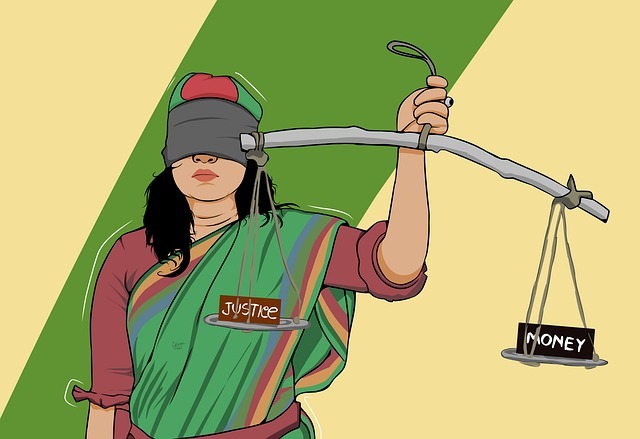Reimagining Justice: Why India Needs “Urgent Hearing Courts” for the Wealthy, At a Cost

In the intricate tapestry of any democracy, the judiciary stands as its most crucial thread, upholding rights, settling disputes, and serving as the final guardian of the Constitution. In India, this role is monumental, given our vast population and staggering backlog of cases. However, there exists an often unspoken, deeply uncomfortable truth: urgent hearings are disproportionately available to the wealthy and influential, albeit through informal or questionable means.
Is it not time to bring this under a transparent, regulated, and revenue-generating umbrella? Should the privilege of priority be allowed to operate in the shadows when it could be structured in the light, to benefit the nation?
“Justice should be swift for all, but if privilege demands an express lane, let it at least pay a toll that builds more roads for the common man.” ~ Adarsh Singh
The Current Reality: Unofficial Privilege
Today, urgent listings in High Courts and the Supreme Court often serve the powerful. Advocates lobby registrars; influential litigants press for immediate listings. The process is neither standardized nor entirely transparent. While the judiciary is largely upright, systemic loopholes allow wealth and influence to often dictate the urgency of hearings.
The silent tragedy is twofold:
1. This creates a perception (and often a reality) of unequal access to timely justice.
2. The monetary benefits of this urgency, informal fees, lobbying costs, enrich individuals rather than strengthening the judicial system or the government treasury.
A Pragmatic Proposal: “Urgent Hearing Courts”
Imagine a parallel track within our justice system:
Special “Urgent Hearing Courts” set up across the country, where cases requiring immediate attention can be listed for rapid hearing.
Only those willing (and able) to pay substantial, officially mandated listing charges could use this service.
The system would be financially self-sustaining, removing any additional burden on taxpayers, while simultaneously generating substantial revenue for the exchequer.
“When necessity meets prosperity, policy must be wise enough to channel both for the common good.” ~ Adarsh Singh
Addressing The Moral Dilemma
Critics might argue that justice should never be sold. And they’re right, at its core, justice must remain equally accessible. But let us be clear: the wealthy already receive faster hearings, through influence and informal channels. A structured, regulated system merely:
Brings transparency to what is currently opaque.
Channels funds into public coffers, which can be used to hire more judges, build more courts, and clear the backlog affecting ordinary citizens.
It’s about converting a shadow privilege into a public asset.
Designing The Model
Such courts could have:
Tiered listing fees based on the urgency and complexity of the matter.
Mandatory contributions to a judicial infrastructure fund, ring-fenced to improve facilities and hire more judges in regular courts.
Strict oversight, ensuring this doesn’t cannibalize normal courts, but truly operates as an additional, optional channel.
Economic & Social Benefits
Revenue generation: Significant funds would flow directly to the exchequer, reducing reliance on general taxation.
Boost to judicial infrastructure: Dedicated funds could reduce case pendency for the general public by expanding normal court capacity.Curtail informal corruption: Lawyers and middlemen would no longer channel funds under the table to secure urgent listings.“True reform lies not in denying privilege, but in making privilege pay for public upliftment.” ~ Adarsh Singh
The Bigger Vision
Imagine a judiciary with far fewer pending cases because special urgency channels are funding thousands of new judges and courtrooms across the country. Imagine the irony transformed into empowerment: the impatience of the rich financing the relief of the poor.
“When we build systems where even the haste of the privileged nourishes the justice of the masses, we create a society that is truly progressive.” ~ Adarsh Singh
The time has come to innovate boldly. India’s judiciary is overburdened, yet the appetite for swift justice by the powerful remains insatiable. Instead of fighting a clandestine reality, let us regulate it, monetize it, and channel it into strengthening our judicial fabric.
“Justice delayed is justice denied, but justice expedited at a price can still be a blessing, if its price funds justice for all.” ~ Adarsh Singh
Sat Jun 28, 2025
